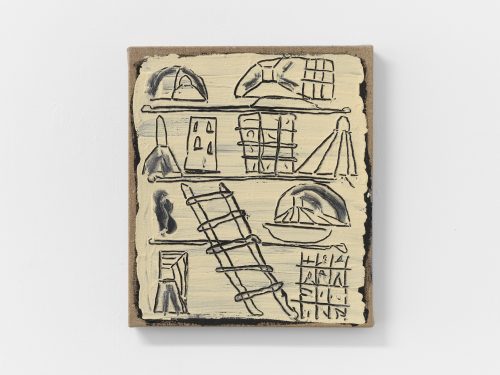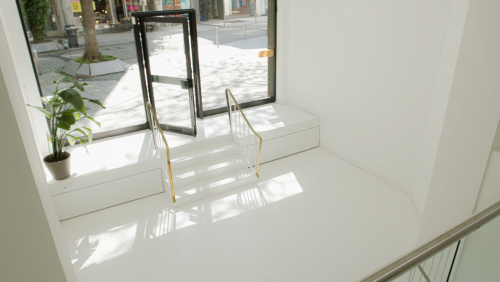
Élie Autin, Salomé Chatriot, Gaëlle Choisne. Chloé Delarue, Rebecca Horn, Yein Lee, Emma Passera
This is the time of sweet sweet change for us all
Project Info
- 💙 CALM – Centre d'Art La Meute
- 💚 Oriane Emery & Jean-Rodolphe Petter
- 🖤 Élie Autin, Salomé Chatriot, Gaëlle Choisne. Chloé Delarue, Rebecca Horn, Yein Lee, Emma Passera
- 💜 Oriane Emery & Jean-Rodolphe Petter
- 💛 Théo Dufloo
Share on
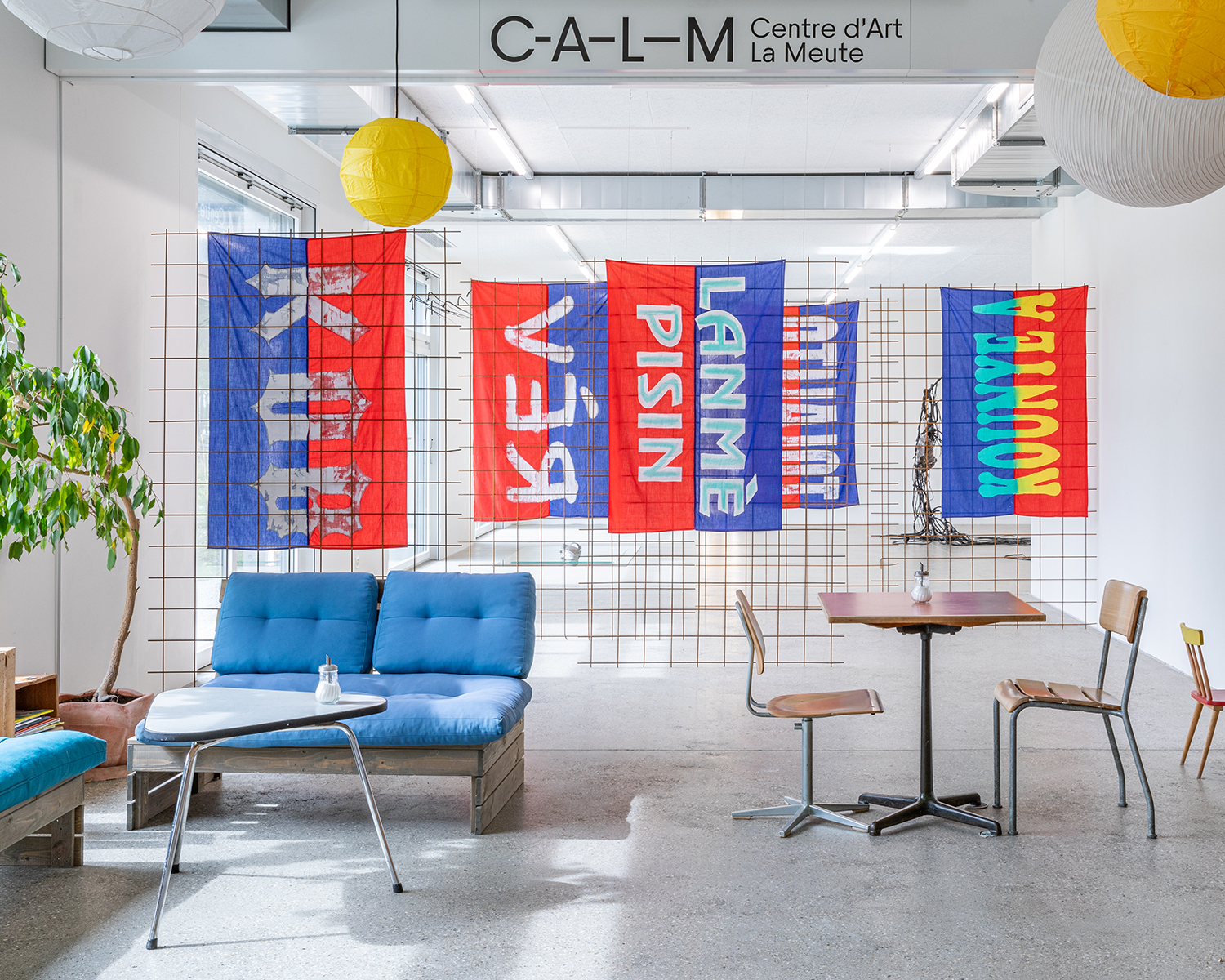
Exhibition view; Gaëlle Choisne, Temple of Love-To be Ascetic (Totalito), 2021, hand-painted flags on metal grids, 96.5 x 147 cm (each), CALM - Centre d'Art La Meute, 2024/Photo: Théo Dufloo/Courtesy of the artist, Air de Paris and CALM.
Advertisement
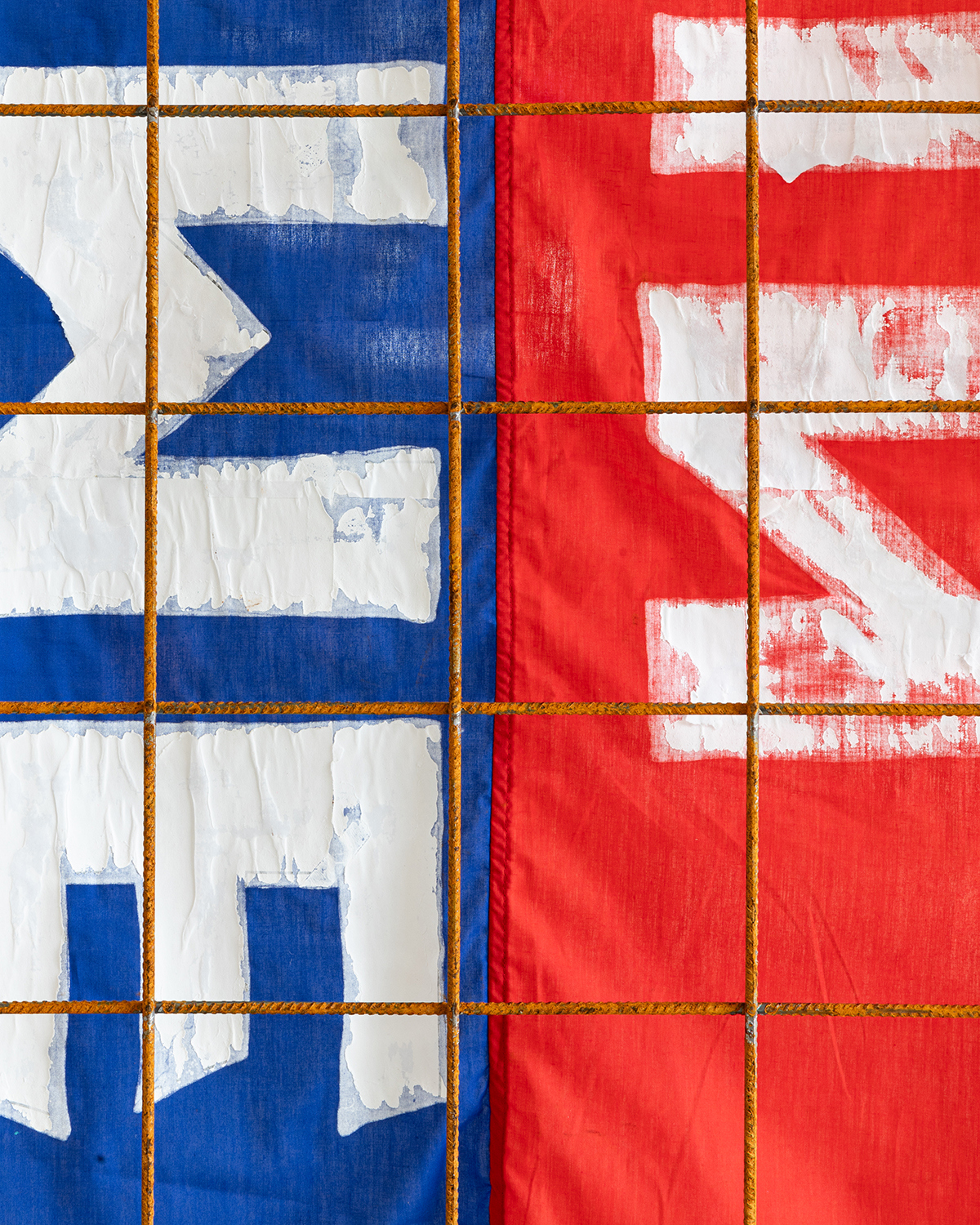
Exhibition view; Gaëlle Choisne, Temple of Love - To be Ascetic (Totalito), 2021, detail, CALM - Centre d'Art La Meute, Lausanne, Switzerland, 2024/Photo: Théo Dufloo/ Courtesy of the artist, Air de Paris and CALM - Centre d'Art La Meute.
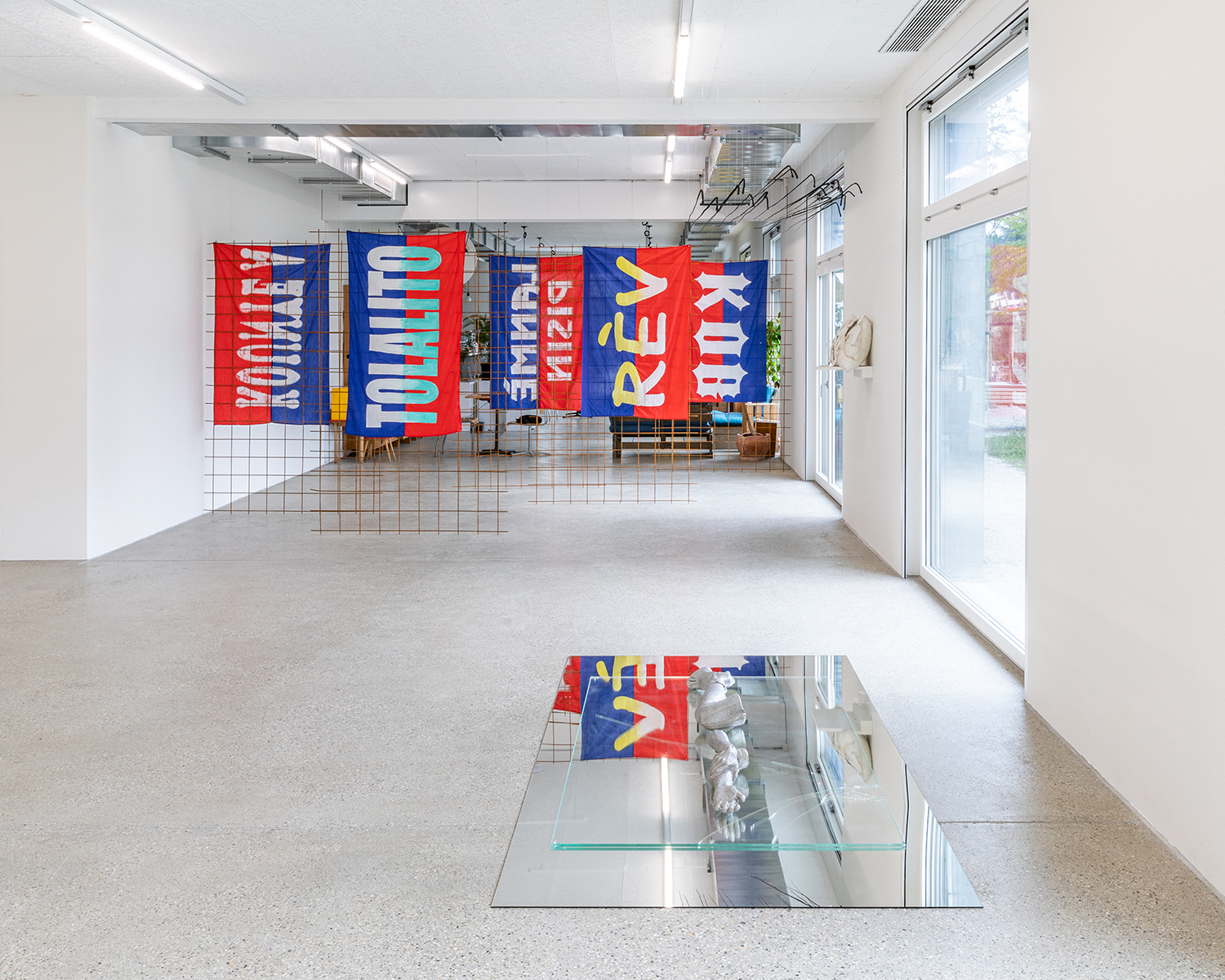
Exhibition view, CALM - Centre d'Art La Meute, Lausanne, Switzerland, 2024 / Photo: Théo Dufloo / Courtesy of the artists, Air de Paris and CALM - Centre d'Art La Meute.
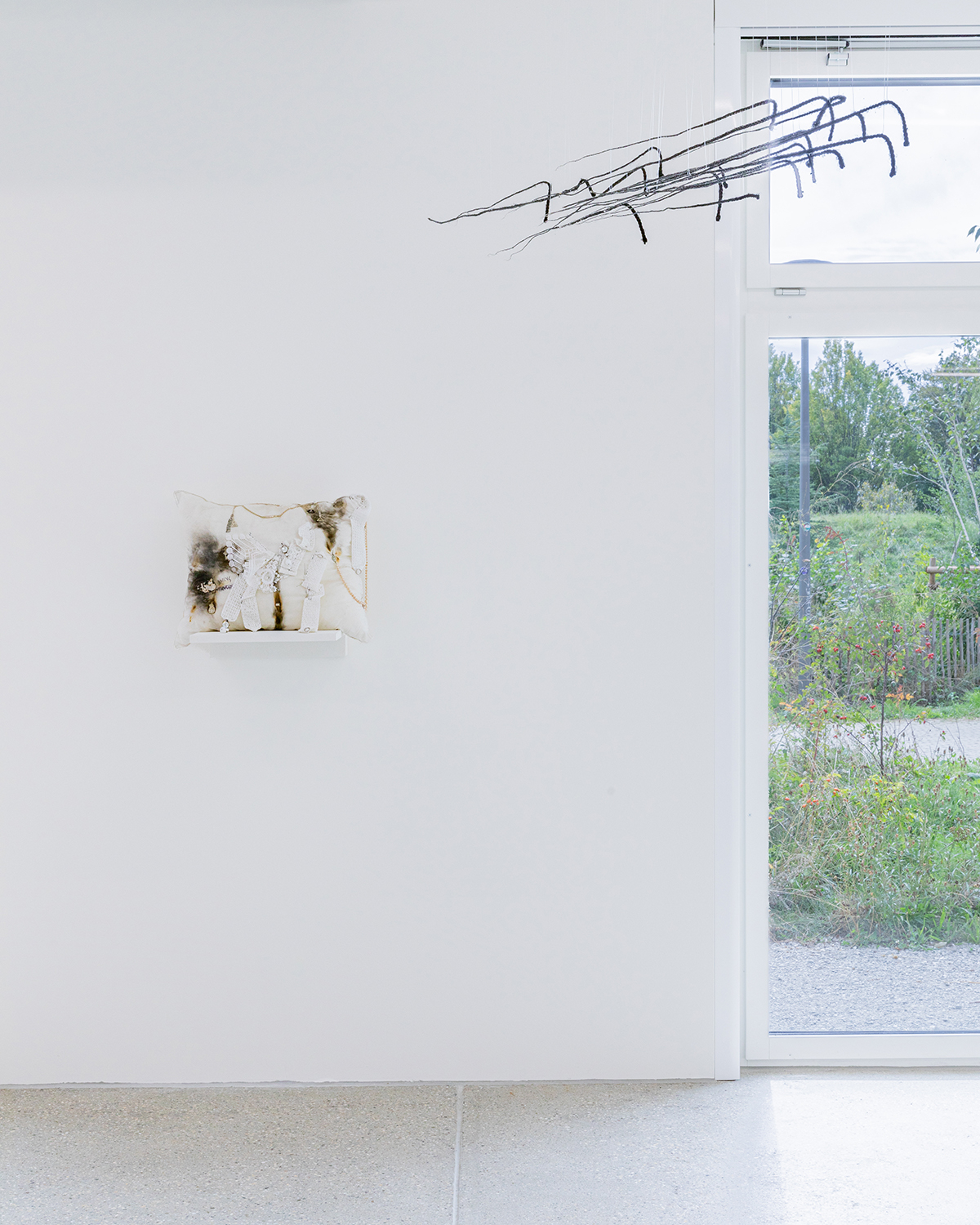
Exhibition view; Élie Autin, Pillow, 2023, hand-sewn cushion enhanced with sewn additions, 60 x 50cm; Arrow, arrows in synthetic hair dipped in resin, CALM - Centre d'Art La Meute, 2024/Photo: Théo Dufloo/Courtesy of the artist and CALM.
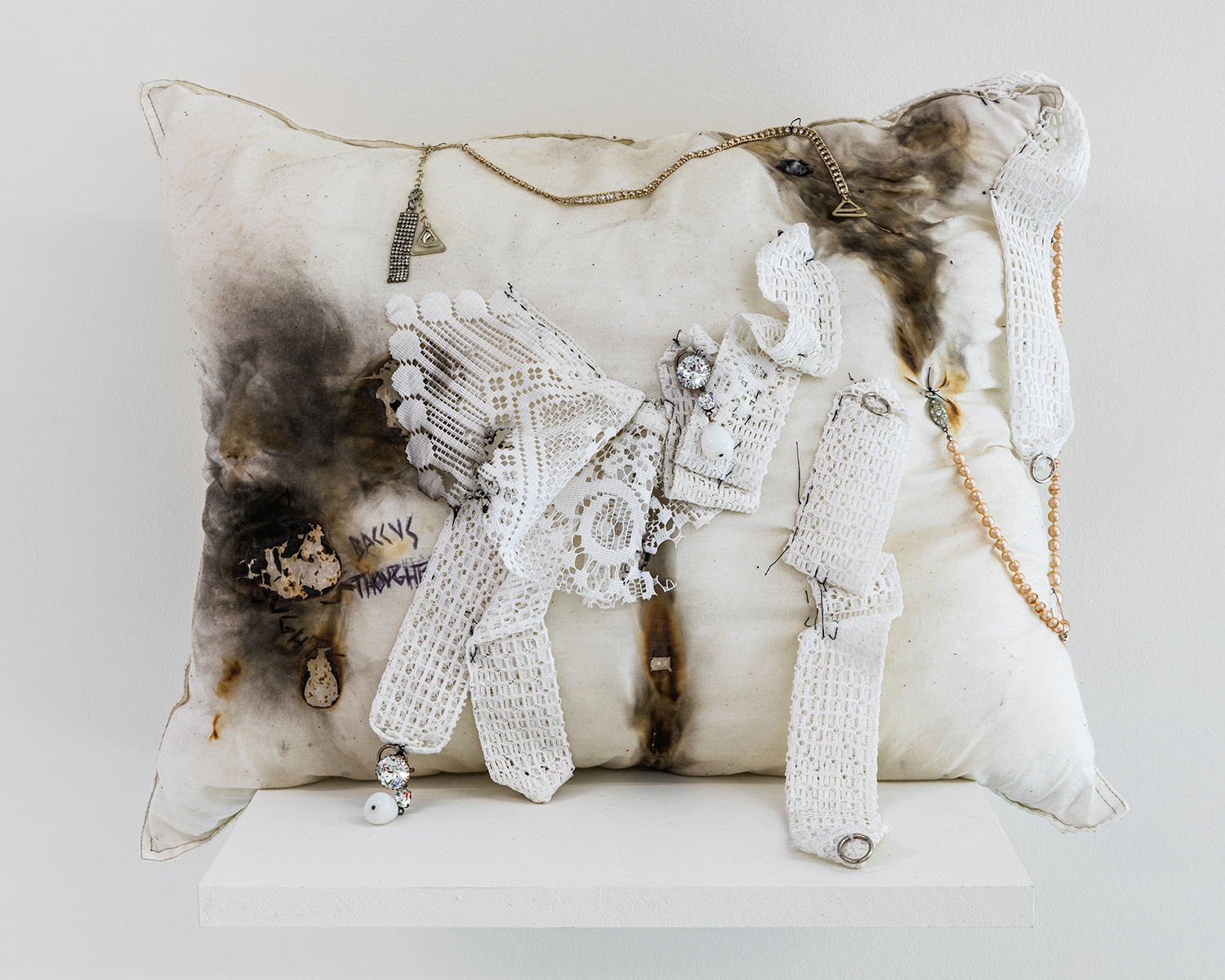
Exhibition view; Élie Autin, Pillow, 2023, hand-sewn cushion with sewn additions, 60 x 50cm, CALM - Centre d'Art La Meute, Lausanne, Switzerland, 2024 / Photo: Théo Dufloo / Courtesy of the artist and CALM - Centre d'Art La Meute.
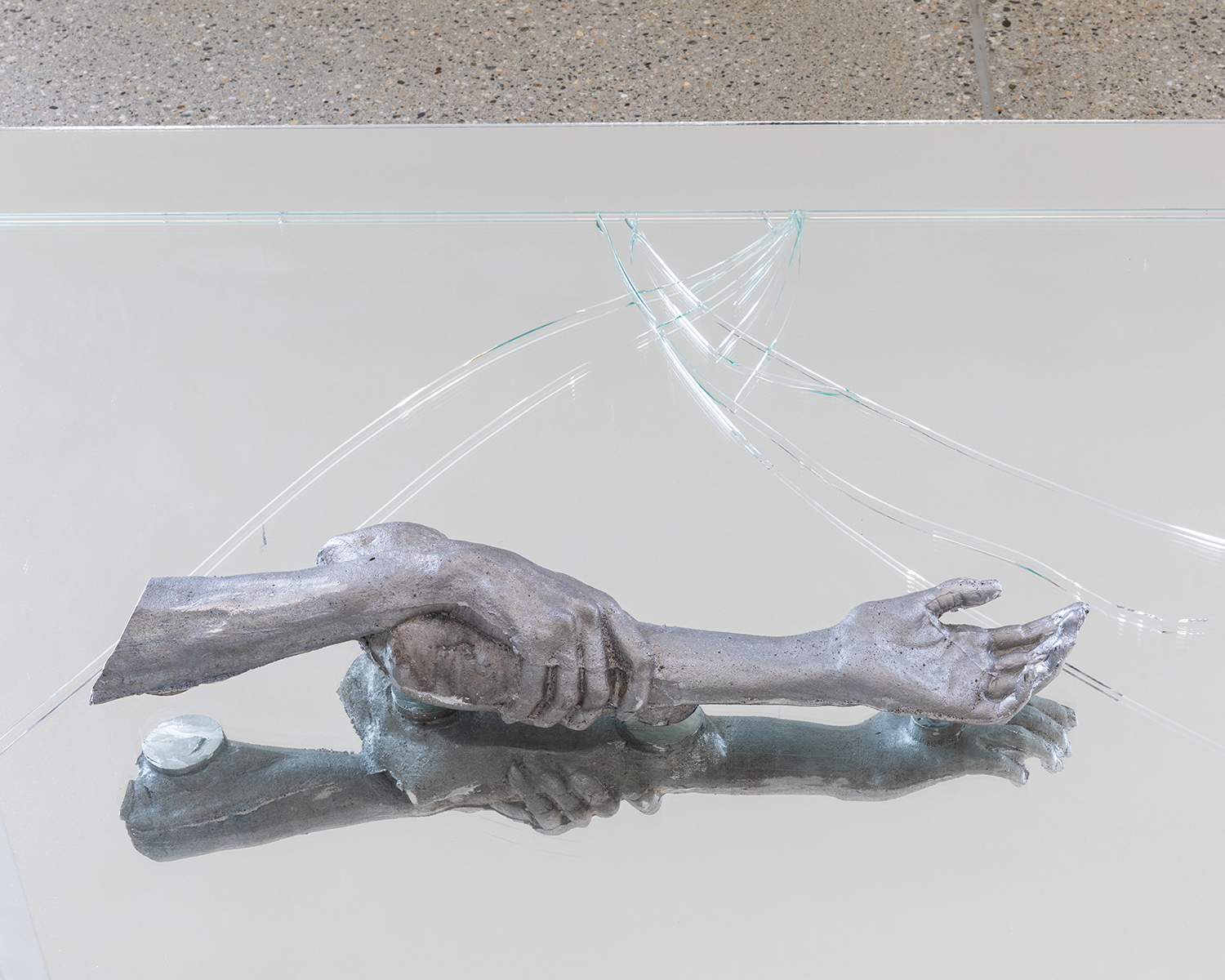
Exhibition view; Emma Passera, 7 days without you, 2024, detail, aluminium arm and leg, mirror, glass, 260 x 130cm, CALM - Centre d'Art La Meute, Lausanne, Switzerland, 2024/Photo: Théo Dufloo/Courtesy of the artist and CALM - Centre d'Art La Meute.
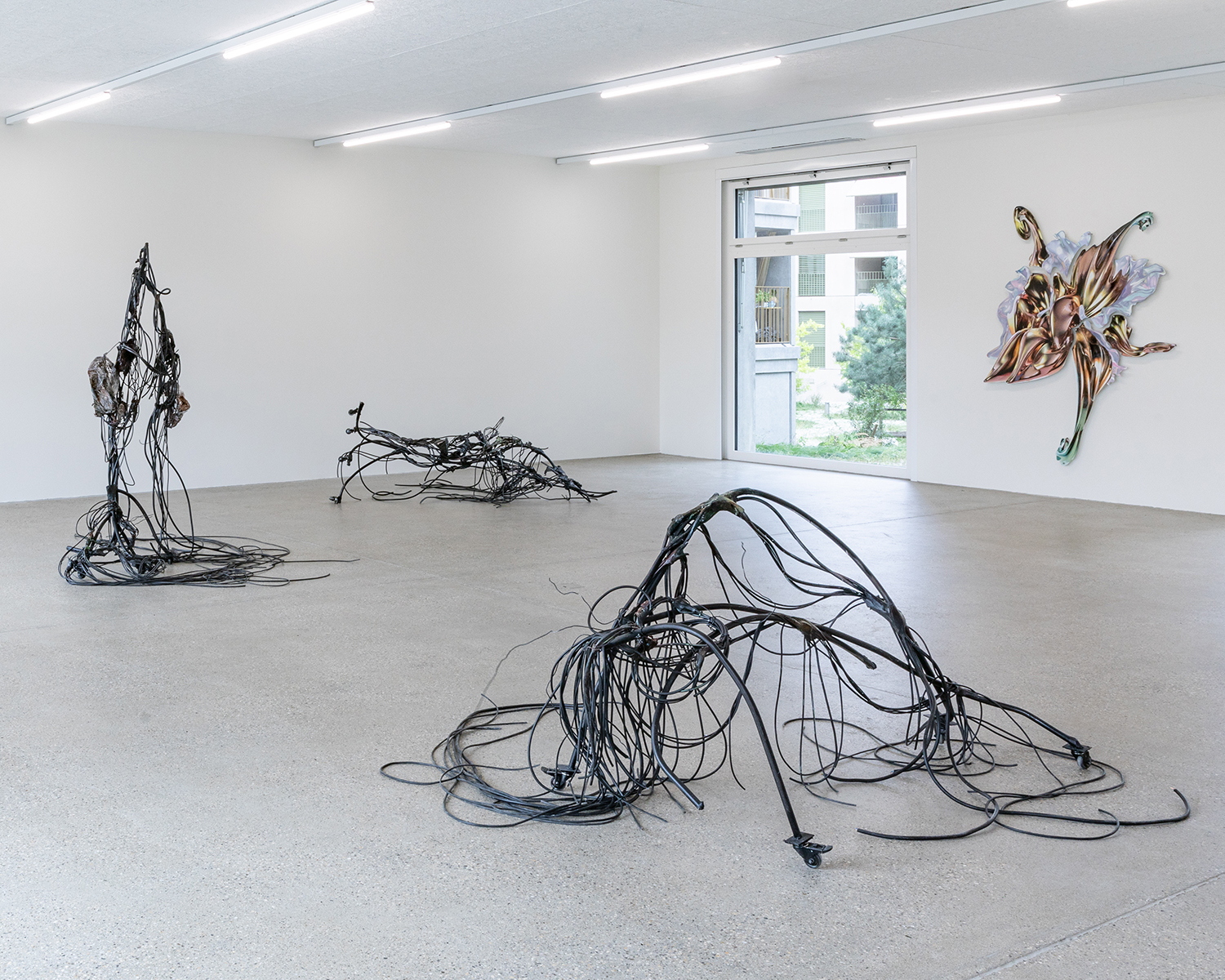
Exhibition view ‘This is the time of sweet sweet change for us all’, CALM - Centre d'Art La Meute, Lausanne, Switzerland, 2024 / Photo: Théo Dufloo / Courtesy of the artists, New Galerie and CALM - Centre d'Art La Meute.
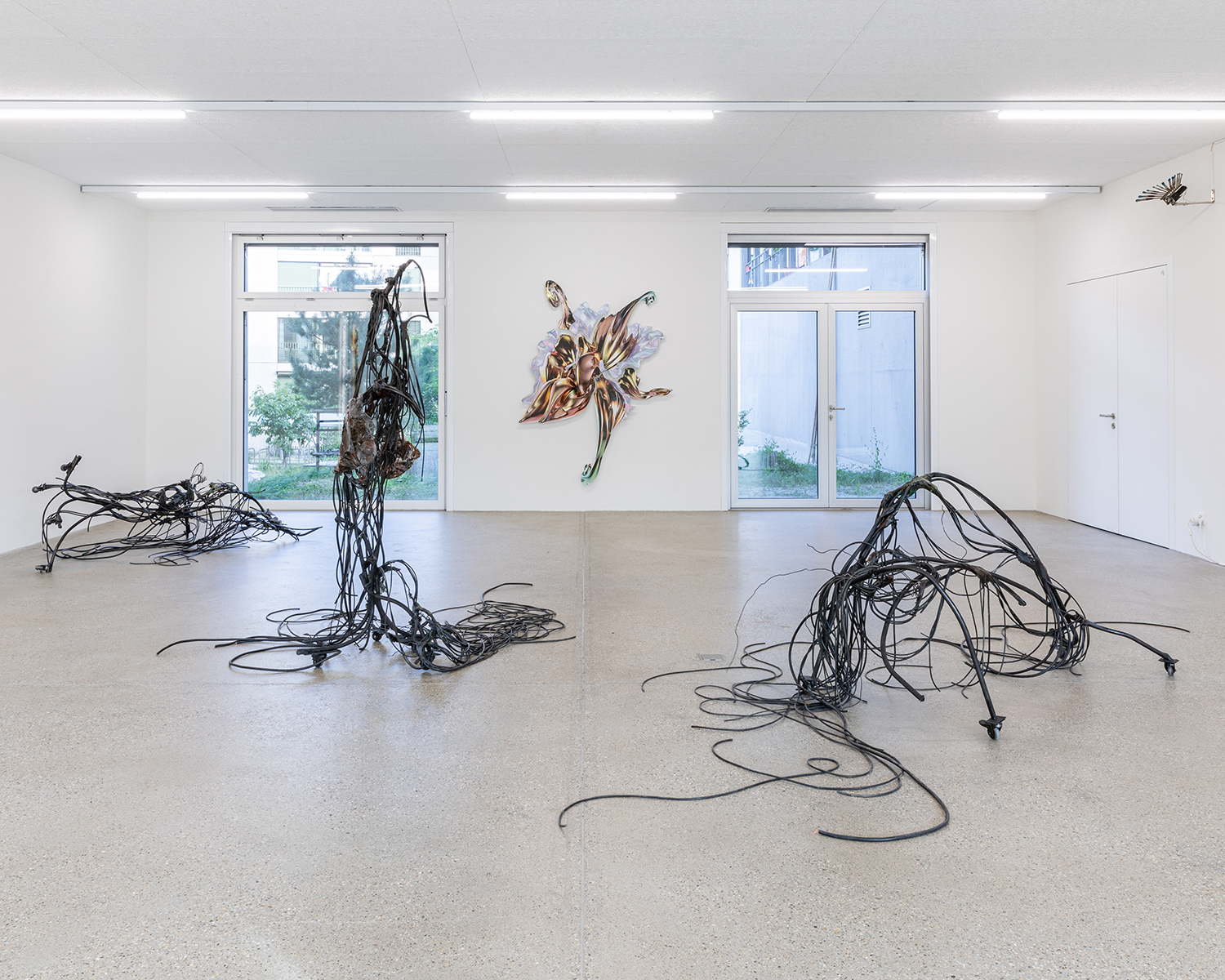
Exhibition view ‘This is the time of sweet sweet change for us all’, CALM - Centre d'Art La Meute, Lausanne, Switzerland, 2024 / Photo: Théo Dufloo / Courtesy of the artists, New Galerie, AL'H collection and CALM - Centre d'Art La Meute.
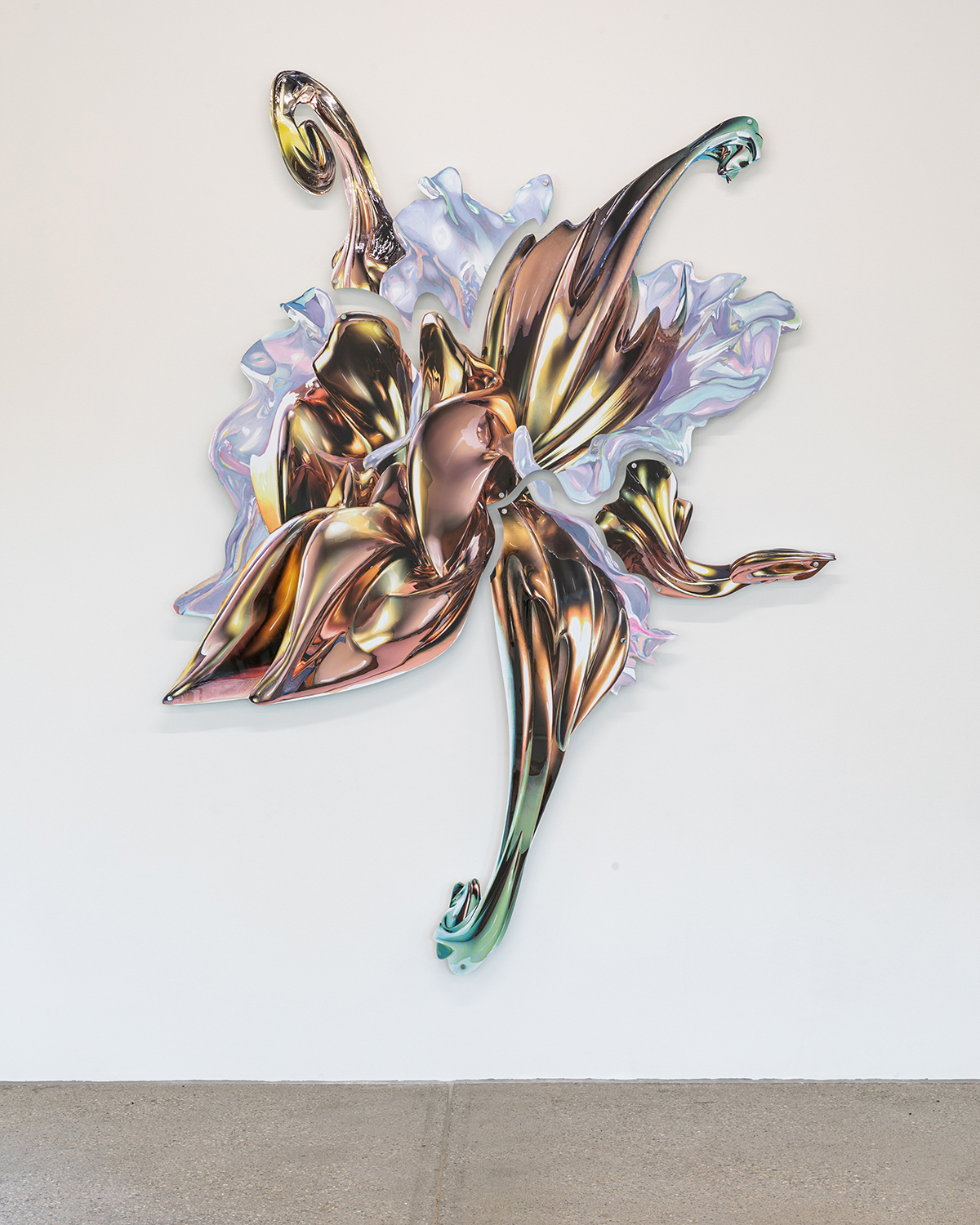
Exhibition view; Salomé Chatriot, Honey Time 4, 2024, oil paint and enamel on aluminium (four parts), 210 x 176 x 5cm, CALM - Centre d'Art La Meute, Lausanne, Switzerland, 2024 / Photo: Théo Dufloo/Courtesy of the artist, New Galerie and CALM.
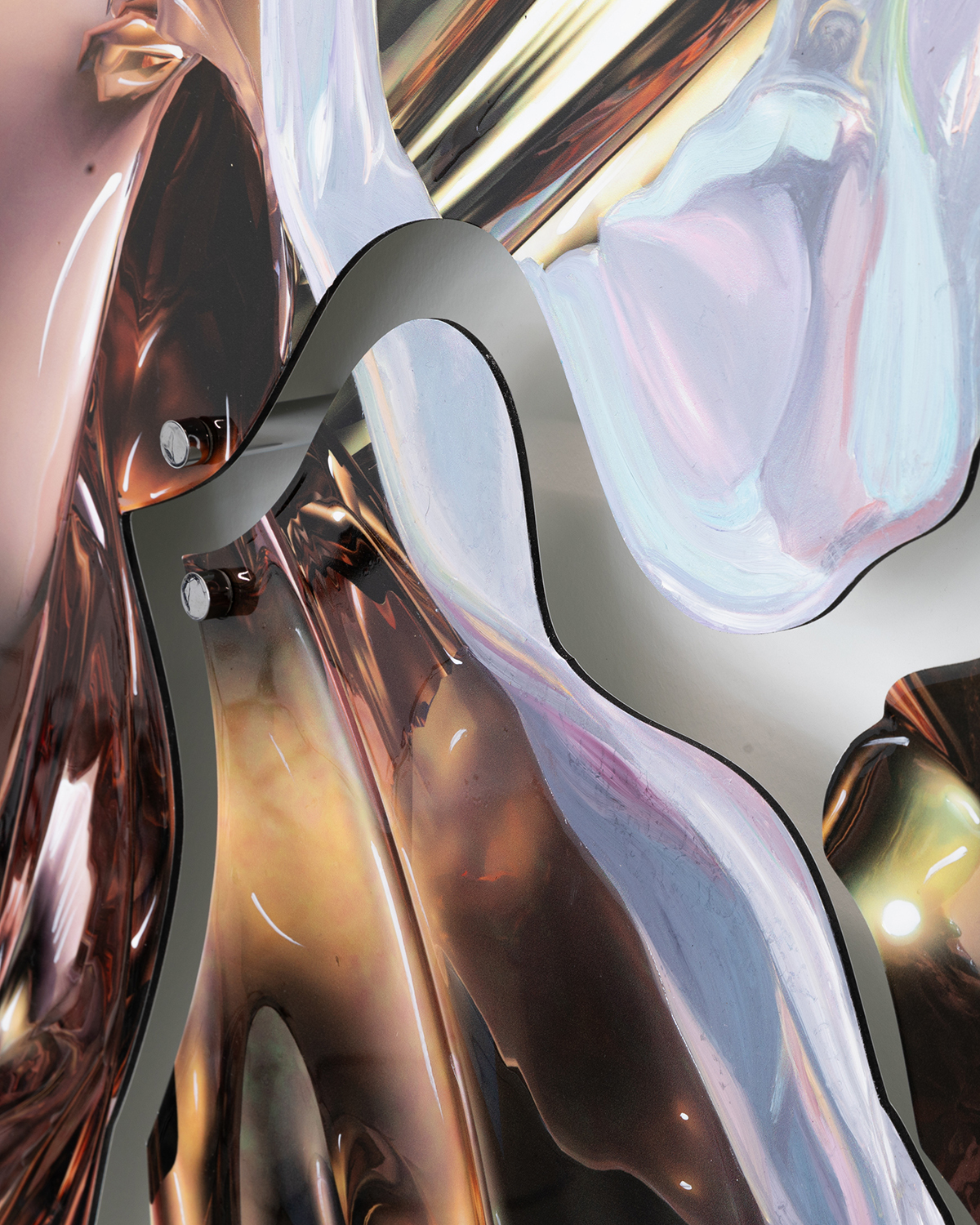
Exhibition view; Salomé Chatriot, Honey Time 4, 2024, detail, CALM - Centre d'Art La Meute, Lausanne, Switzerland, 2024/Photo: Théo Dufloo/Courtesy of the artist, New Galerie and CALM - Centre d'Art La Meute.
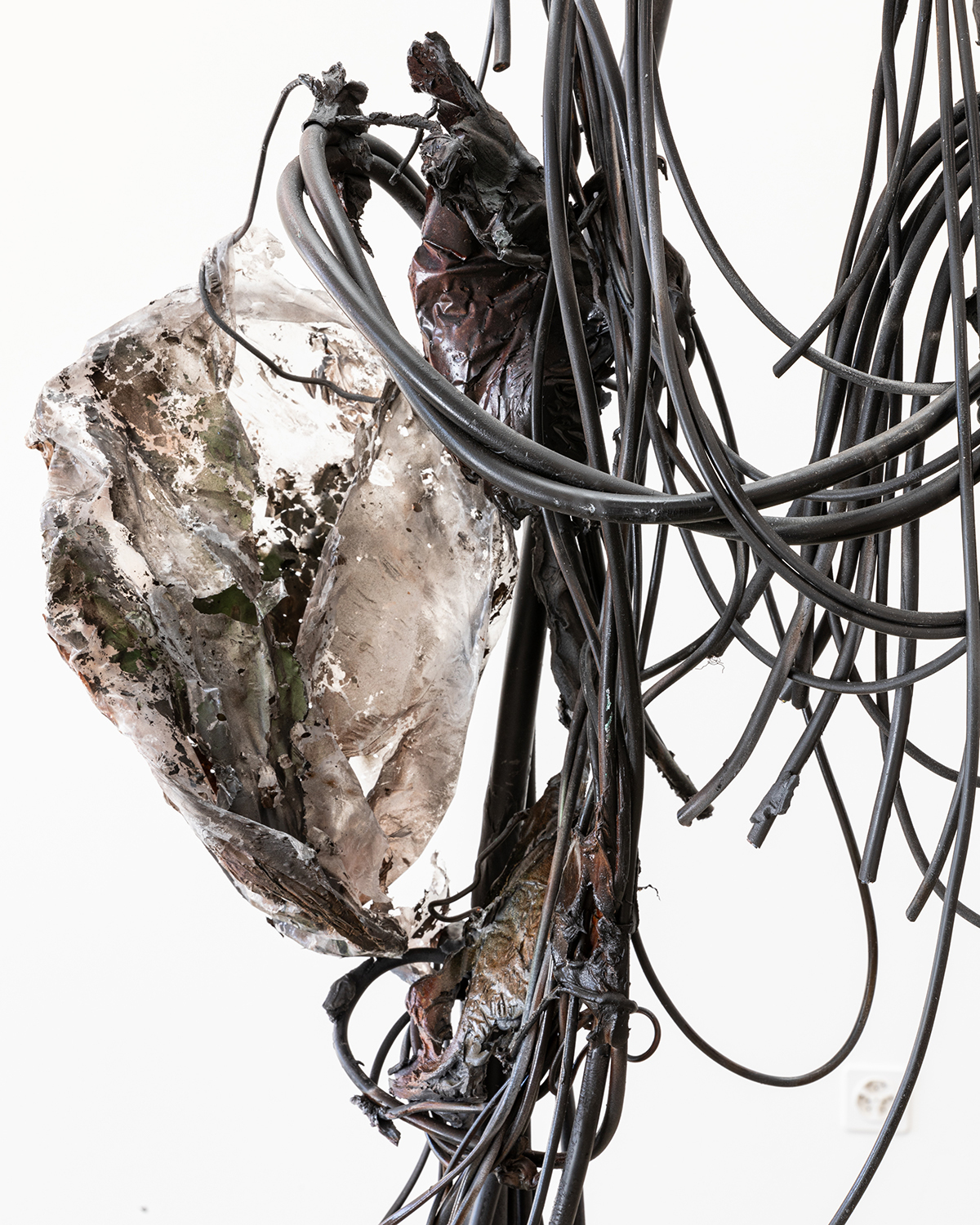
Exhibition view; Yein Lee, Poursuivant / Pursuers, 2024, detail, installation consisting of three sculptures on castors made of electric cables, dim. variable, CALM - Centre d'Art La Meute, 2024/Photo: Théo Dufloo/Courtesy of the artist and CALM.
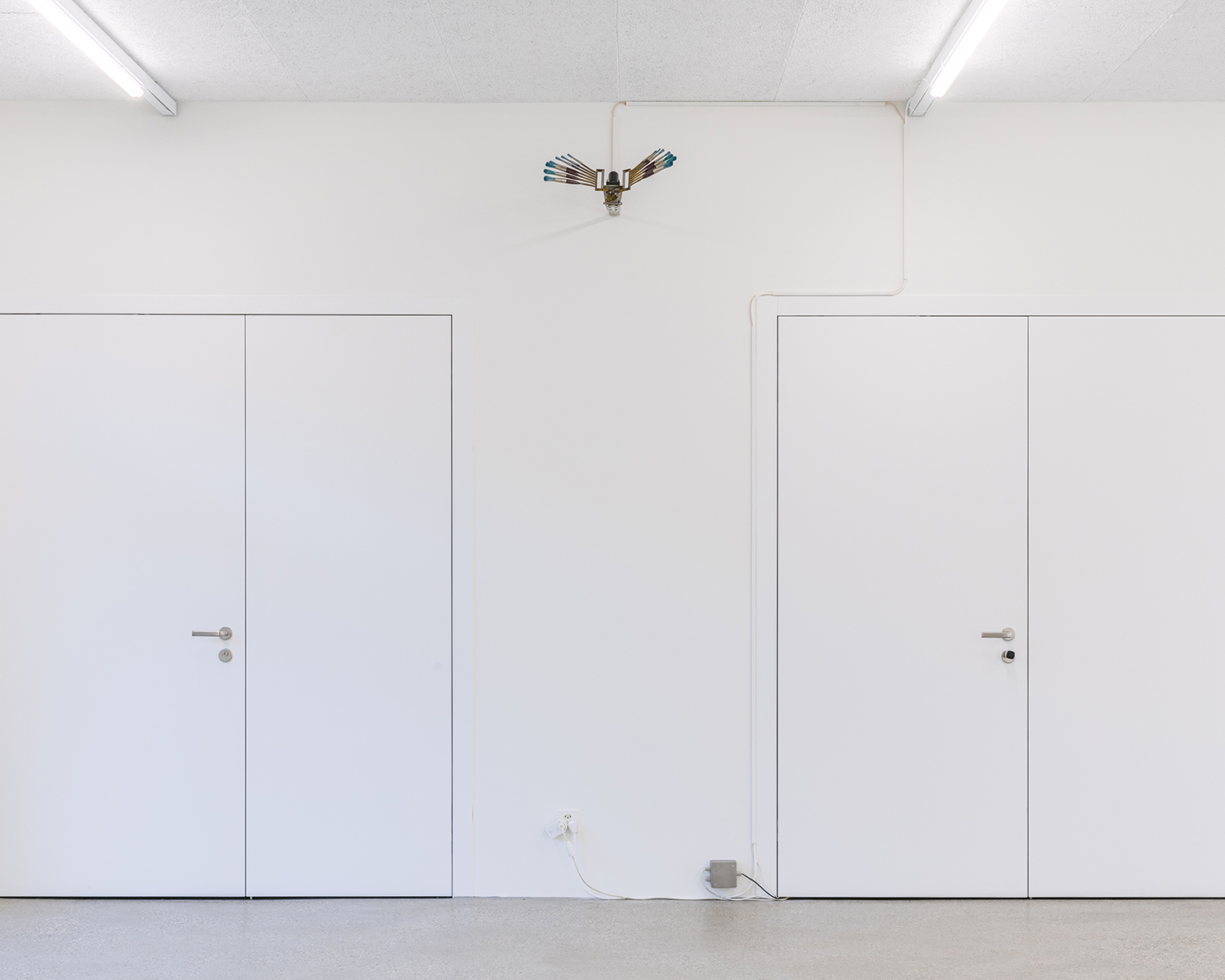
Exhibition view; Rebecca Horn, Brush Machine, 1989, 14 brushes, metal, motor, 12v transformer, mechanical timer, 30 x 45 x 33cm, CALM - Centre d'Art La Meute, 2024/Photo: Théo Dufloo/Courtesy of the artist, collection AL'H and CALM.
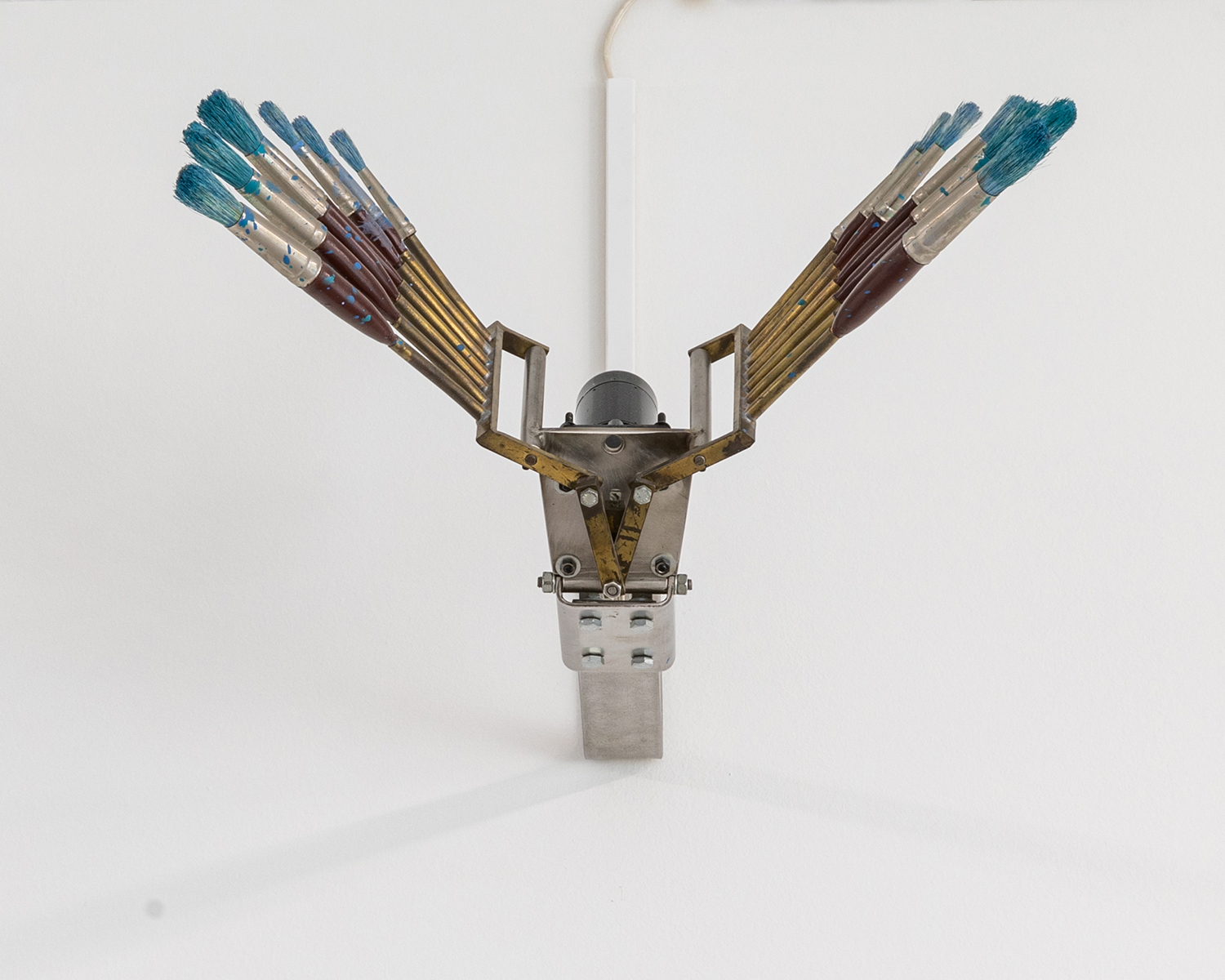
Exhibition view; Rebecca Horn, Brush Machine, 1989, detail, CALM - Centre d'Art La Meute, Lausanne, Switzerland, 2024 / Photo: Théo Dufloo / Courtesy of the artist, collection AL'H and CALM - Centre d'Art La Meute.
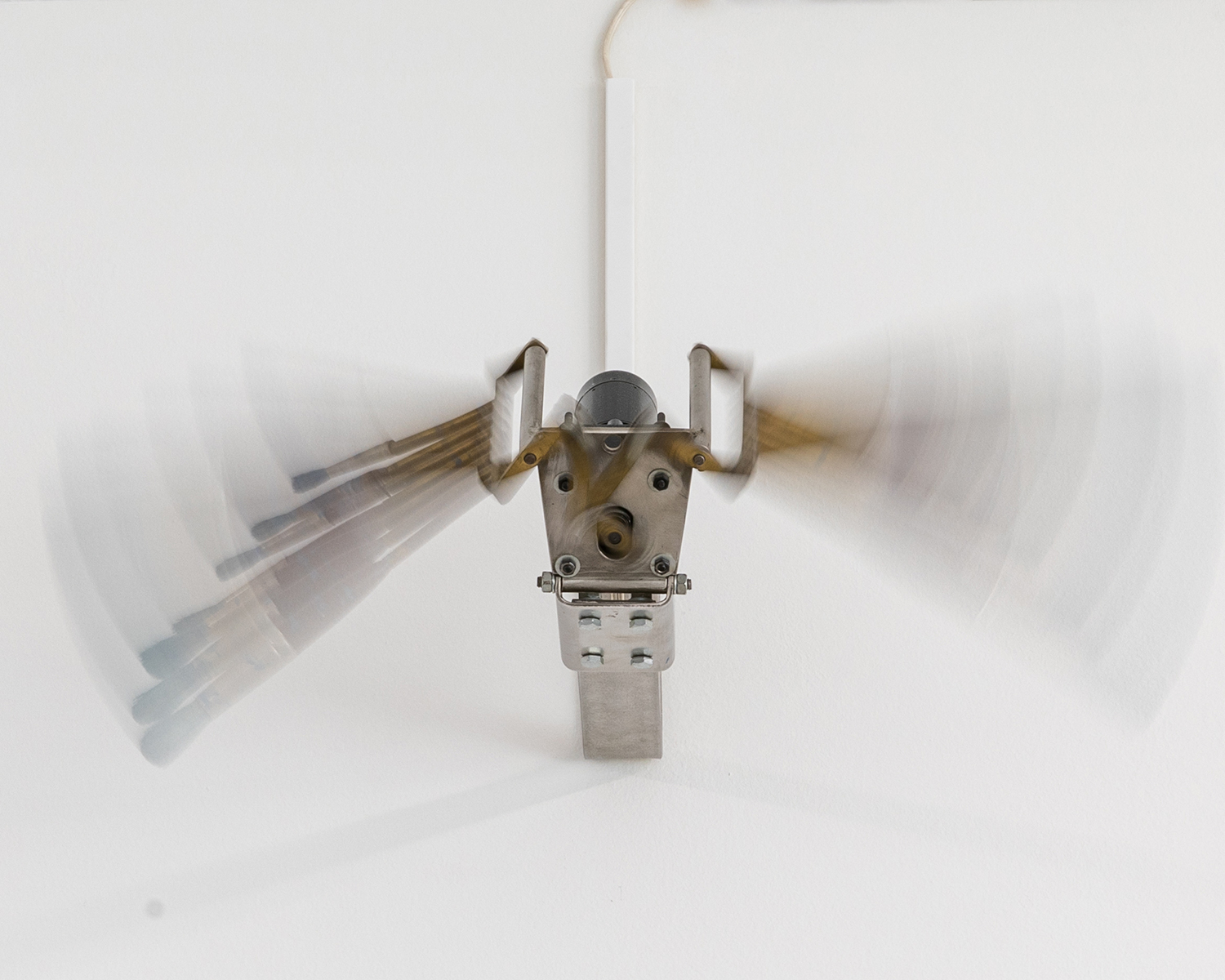
Exhibition view; Rebecca Horn, Brush Machine, 1989, detail, CALM - Centre d'Art La Meute, Lausanne, Switzerland, 2024/Photo: Théo Dufloo/Courtesy of the artist, collection AL'H and CALM - Centre d'Art La Meute.
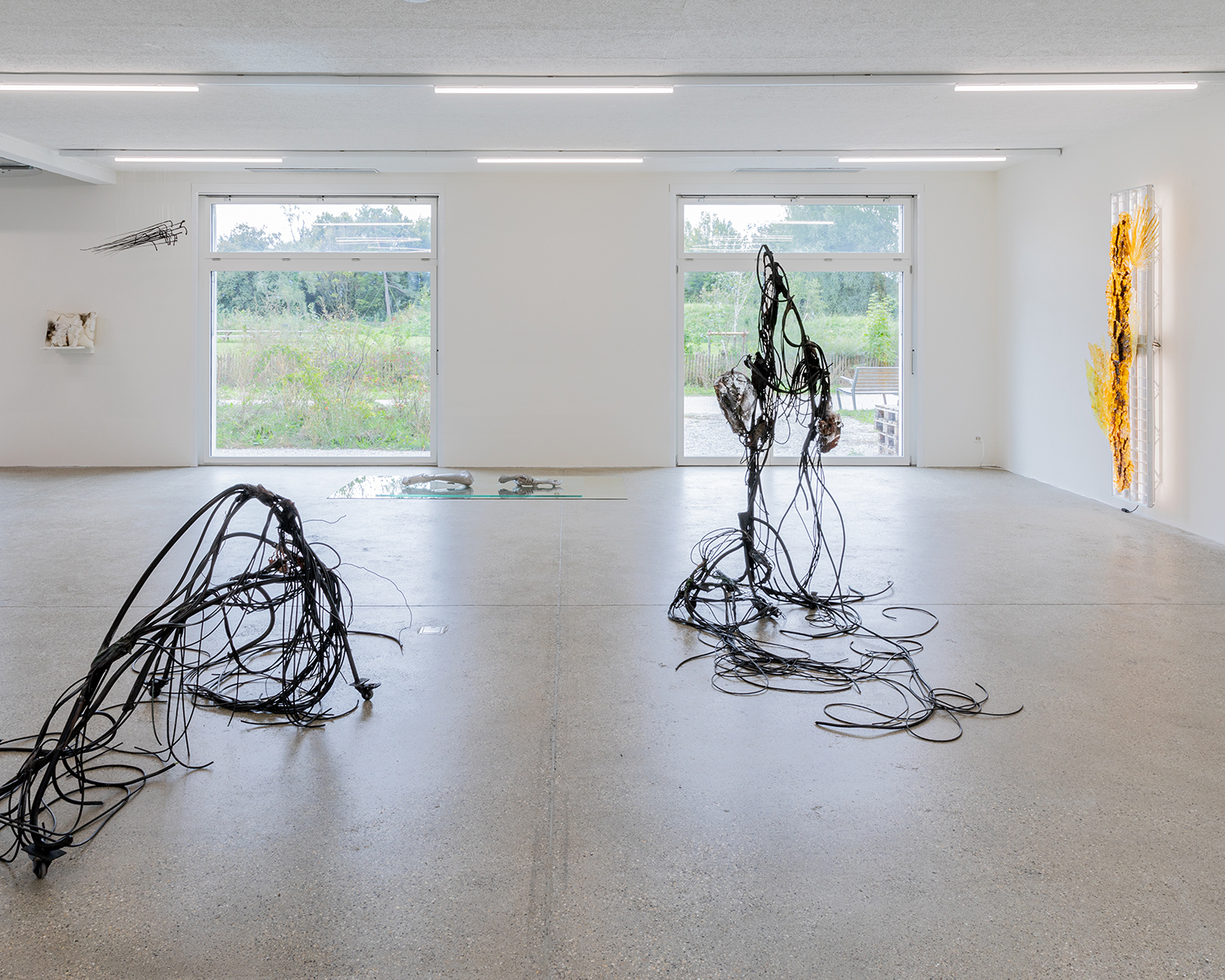
Exhibition view ‘This is the time of sweet sweet change for us all’, CALM - Centre d'Art La Meute, Lausanne, Switzerland, 2024 / Photo: Théo Dufloo / Courtesy of the artists, galerie frank elbaz and CALM - Centre d'Art La Meute.
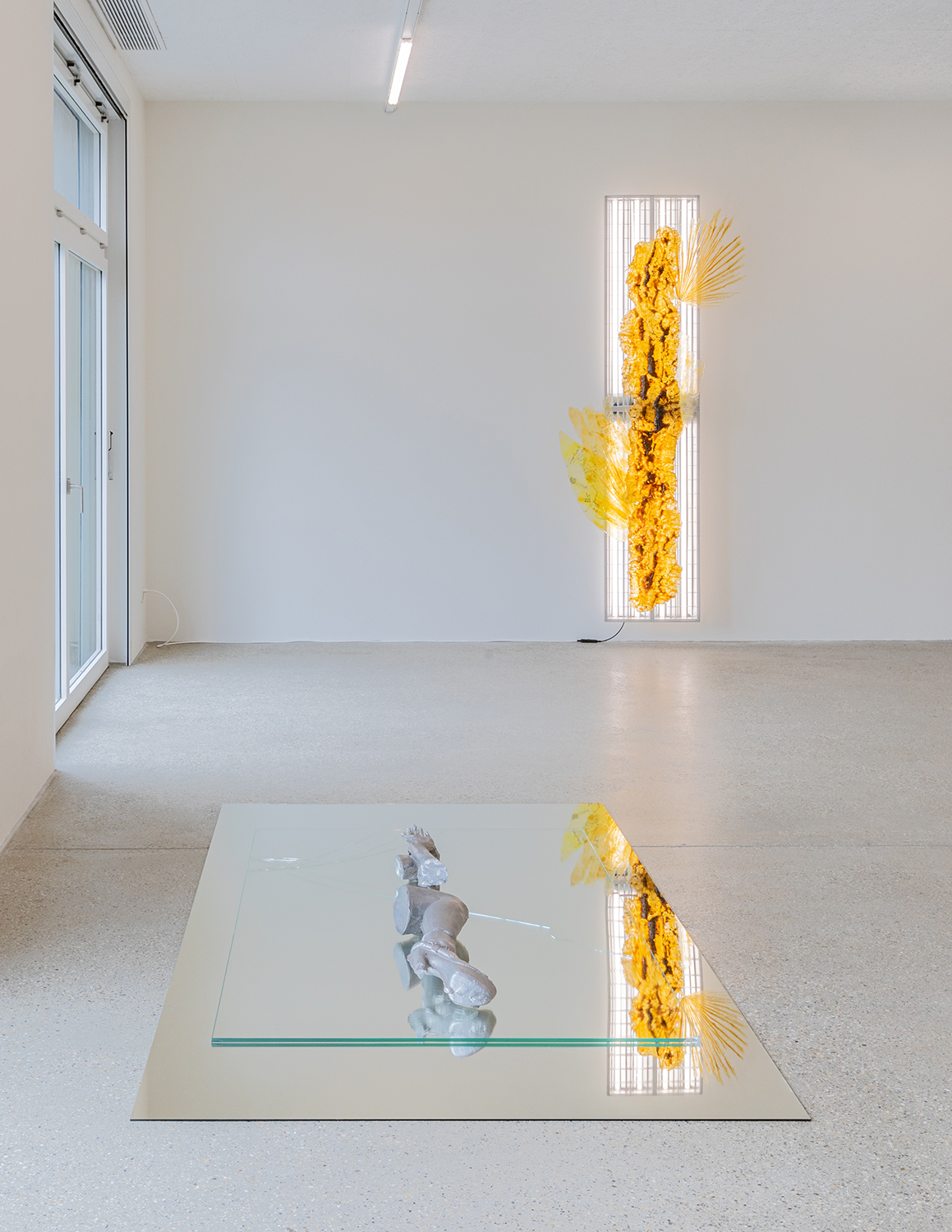
Exhibition view ‘This is the time of sweet sweet change for us all’, CALM - Centre d'Art La Meute, Lausanne, Switzerland, 2024 / Photo: Théo Dufloo / Courtesy of the artists, galerie frank elbaz and CALM - Centre d'Art La Meute.
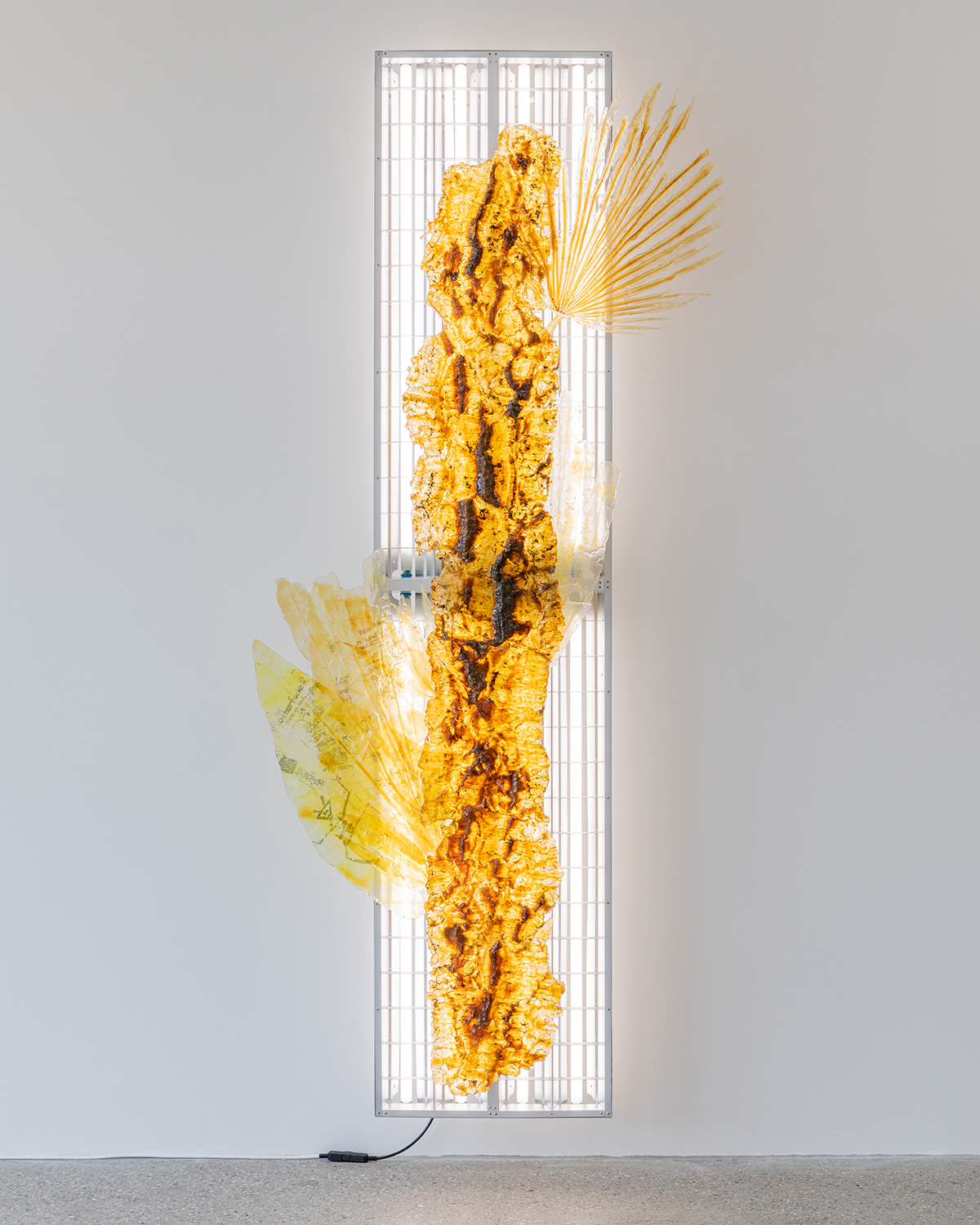
Exhibition view; Chloé Delarue, TAFAA - UNNECESSARY DOUBT (SNITCH II), 2024, latex, resin, transfer print, fluorescent tubes, 240x90x20cm, CALM-Centre d'Art La Meute, 2024/Photo: Théo Dufloo/Courtesy of the artist, galerie frank elbaz and CALM.
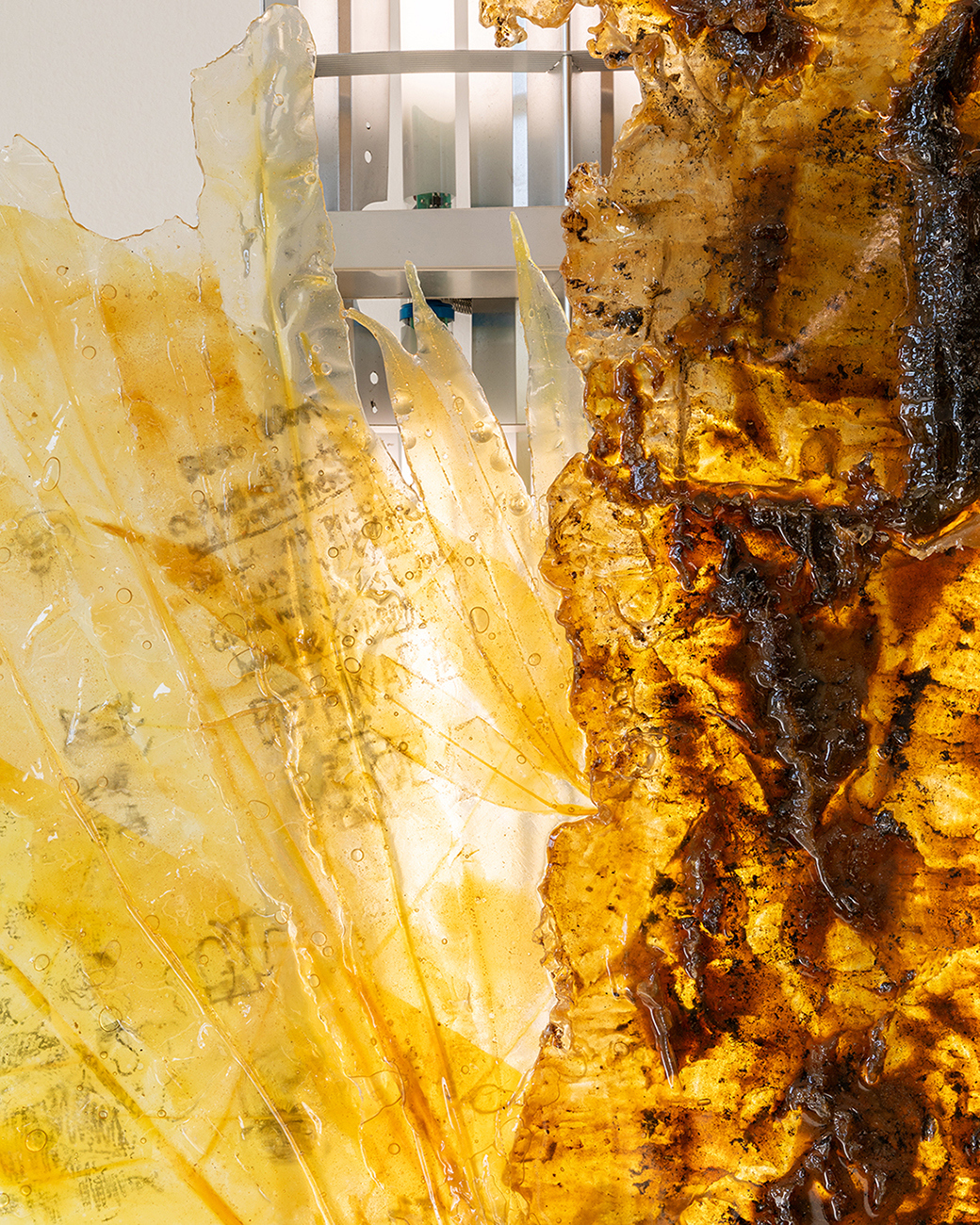
Exhibition view; Chloé Delarue, TAFAA - UNNECESSARY DOUBT (SNITCH II), 2024, detail, CALM - Centre d'Art La Meute, Lausanne, Switzerland, 2024 / Photo: Théo Dufloo/Courtesy of the artist, galerie frank elbaz and CALM.
CALM - Centre d’Art La Meute invites you to discover the first exhibition of its 2024-2025 cultural season. The title of the exhibition refers to the film “Born in Flames”, directed by Lizzie Borden (Detroit, Michigan, USA) in 1983.
The film had a profound effect on us, so we decided to design and build an exhibition
around its narrative and environment. It depicts a clandestine women’s army developing in a dystopian New York. As social unrest shakes the streets, brigades of women on bicycles roam the grim urban landscape, fending off rapists in particular. But much of the dramatic tension stems from the efforts of women - racialized and white, queer and heterosexual, working-class and elite - to understand each other and work together.
Considered by cinema to be in the science fiction genre at the time of its release, its discourse is utterly contemporary and real forty years on. Its radicalism, typical of the essay genre, challenges and stimulates reflection on the workings of our society and the place violence occupies within it.
This exhibition brings together women who, in their respective work, bear witness to political links with film or aesthetic links with the genre of science fiction and underground cultures. The exhibition’s scenography is an urban mise en abyme, between dense and open spaces, oppressive and liberating, from the grid, a reproducible module, to open squares. The aim was to integrate the primordial and the futuristic, following the example of the generic city model (Rem Koolhaas) that is Manhattan.
Gaëlle Choisne’s installation, adapted for the art center’s architecture, invites us from the convivial space of the Café du Loup to engage with a network of vertically-erected rebar trellises. The hand-painted flags are inspired by the political banners used during elections in Haiti, and were created in Port-au-Prince by graphic artist James Ford Auguste. Through these flags and the Temple of Love cycle (here Tolalito), the artist explores love as a form of resistance, mourning as collective care and pays tribute to the victims of slavery and colonization, past and present. Priestess of Bacchus, emperor’s wife or herself, Élie Autin (lives and works in Lausanne) has developed her plastic work around the mythological figure and her followers, the bacchantes. Seduction, ecstasy and perdition are an integral part of the fantasized image of 1980s New York. The arrows, made of synthetic hair, lure, attract and repel us, but also protect the jeweled cushion, a symbol of lust and eroticism.
The exhibition now moves into the main hall. On view are works of a different kind, focusing on the body, metal, machines or flirting with a futuristic imagination. Extending from the entrance, emerging artist Emma Passera’s sculpture unfurls on the floor. Through a very poor economy, each of the elements assembled by the artist find their place in an aesthetic of chaos and in- between. The reflections on the glass of aluminum molds made from her own body express an attitude, a latency that her works juxtapose with the desire to step out of the frame. Meanwhile, the sculptures created by Korean artist Yein Lee move. They are activated by performance. These beings, made of recycled electrical cables, possess few human attributes. At the opening, the performers enter into the dance and give life to this ensemble, which we don’t know whether it evokes the future, an apocalyptic present or a bygone technological past.
This aesthetic is somewhat shared by Chloé Delarue, a French-born artist based
in Geneva. She plays with the codes of the machine: light, metal, repetition. The perpetual cycle of a machine sometimes breaks, rusts or enters into phase with the development of surrounding elements. These heterogeneous “environments”, as the artist calls them, are made up of a multitude of details revealed to the public by the LED lighting of their structure. The machine and its bearing, the body, are notions dear to the heart of German artist Rebecca Horn (1944-2024). Passed away on September 6, the artist’s movement has come to an end. Her works, whose mechanism will be preserved for future generations, will live on. Like this Brush Machine, created in 1989 and acquired the same year by the AL’H collection. The first exhibition in 35 years, this mechanical butterfly, whose movement is both noisy and elegant, is situated high up. It surprises as much as it reminds us of its presence. In operation a few times a day, will you be lucky enough to see it flap its wings?
The exhibition ends or begins again with a new production by Salomé Chatriot,
a French artist who graduated from ECAL and is now based in Paris. Her work focuses on the creation of physical and virtual spaces. Composed of four elements, enamel paint rubs shoulders with digital printing and Dibond aluminum. The energy that emerges from the composition underscores both the architectural and natural environment of the eco-neighborhood in the process of transformation.
– This is the time for sweet sweet change for us all –
This is the sentence that marks the end of Isabel and Honey’s radio appearance (Phoenix Ragazza Radio Station) in Lizzie Borden’s film Born in Flames. It also marks the end of this text, conceived as a first visit. A first contact with these artists whose work, each in their own way, continues the American director’s radical message and passionate commitment to equality and resistance.
Oriane Emery & Jean-Rodolphe Petter



